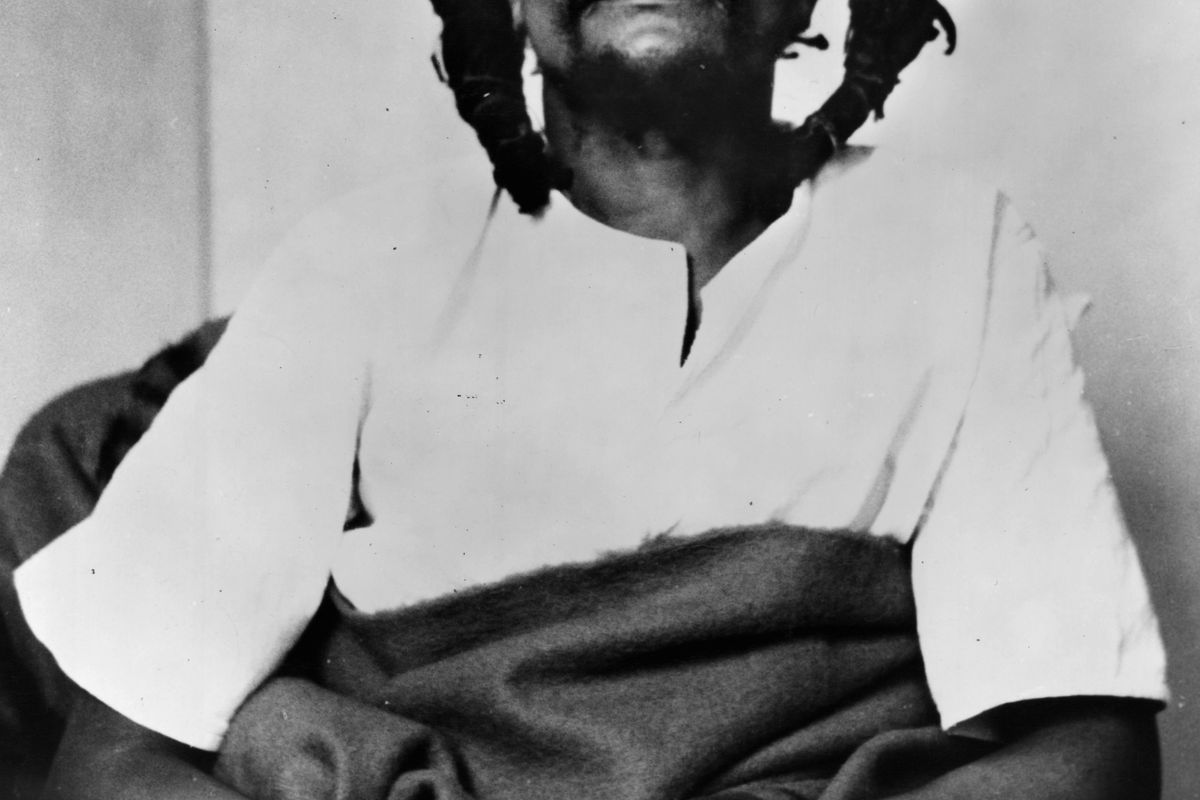Remains of Kenyan Liberation Leader, Dedan Kimathi, Believed to Have Been Found After 62 Years
UPDATE: The family of Dedan Kimathi is standing by earlier reports that his gravesite has been found, despite a statement from Kenya's Ministry of Interior calling the news "false and misleading."

Dedan Kimathi Waciuri, shown at his trial in the Nyeri forest, led an armed military struggle known as the Mau Mau uprising against the British colonial government in Kenya, 1956. (Photo by Authenticated News/Archive Photos/Getty Images)
UPDATE 10/29/19: Dedan Kimathi's family is standing by earlier reports that his gravesite has been identified, despite a recent tweet from Kenya's Interior Ministry, calling the news "false and misleading."
A foundation in the late Kenyan liberation leader's name shared a statement on Friday, claiming that his burial site had been located after 62 long years. The news was welcomed and celebrated by many Kenyans who had long been anticipating the identification of his remains.
However, over the weekend Kenya's Ministry of Interior denied the claims. According to an AFP report on the Japan Times, Kimathi's daughter Evelyn Wanjugu Kimathi stood by the original report, telling the AFP that the family released the statement without the government's knowledge or involvement. "We, the family, are the ones that went to Kamiti Maximum Prison, and were able to find the place he was buried in an unidentified grave," she said.
A video shared by the Dedan Kimani foundation appears to show a group of supporters gathering and signing around his 88-year-old widow, affectionately known as Mama Mukami Kimathi following the announcement, which comes just under a week before what would've been Kimathi's 99th birthday.
Continue for original post:
The remains and burial site of Dedan Kimathi, the Kenyan revolutionary who led the Mau Mau Uprising against British colonial rule, have reportedly been identified after a 62-year search.
Kimathi, the military and spiritual leader of the Kenyan Land and Freedom Army (also known as the Mau Mau), was captured by British colonial forces in 1956 and executed the following year by hanging. He is considered a revolutionary hero of the colonial struggle by many Kenyans, who have advocated for the government to locate his remains since his death.
His grave site was located at Kamiti Maximum Security Prison, according to a statement shared online from the Dedan Kimathi Foundation. The news has been trending on Twitter, with several Kenyans celebrating his body finally being found after more than six long decades, using the hashtag #KimathiGraveIdentified.
The statement from the foundation reads: "It is with great joy, we would like to announce that, following numerous concerted efforts, spearheaded by the Government of the Republic of Kenya, the gravesite of liberation hero Field Marshall Dedan Kimathi has finally been identified!"
The hope is that the remains can be exhumed and that Kimathi can finally be given a proper burial. "We now remain, fingers crossed, as we wait for Chief Justice David Maraga to allow for the excavation and exhumation of Kimathi's remains for a decent burial," the statement adds.
Several Kenyans online continue to express happiness and emotion at the long-awaited news.

